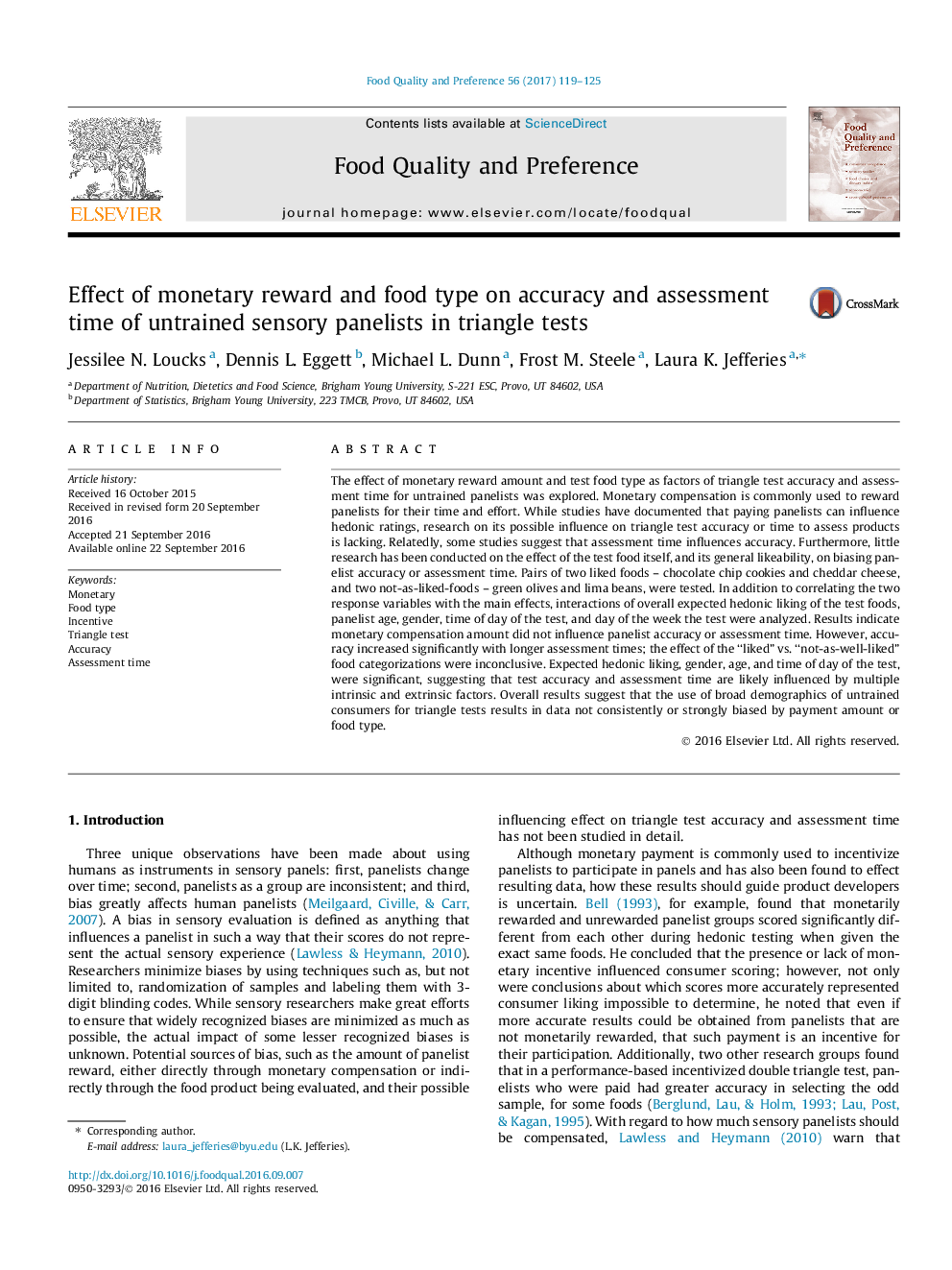| کد مقاله | کد نشریه | سال انتشار | مقاله انگلیسی | نسخه تمام متن |
|---|---|---|---|---|
| 4316834 | 1411890 | 2017 | 7 صفحه PDF | دانلود رایگان |
• Monetary compensation amount is not a primary factor for triangle test accuracy or assessment time.
• Accuracy increased with increased assessment time.
• Assessment time and accuracy were impacted differently by the level of liking of test foods.
• Demographics, time of day, and day of the week were significant factors for assessment time.
The effect of monetary reward amount and test food type as factors of triangle test accuracy and assessment time for untrained panelists was explored. Monetary compensation is commonly used to reward panelists for their time and effort. While studies have documented that paying panelists can influence hedonic ratings, research on its possible influence on triangle test accuracy or time to assess products is lacking. Relatedly, some studies suggest that assessment time influences accuracy. Furthermore, little research has been conducted on the effect of the test food itself, and its general likeability, on biasing panelist accuracy or assessment time. Pairs of two liked foods – chocolate chip cookies and cheddar cheese, and two not-as-liked-foods – green olives and lima beans, were tested. In addition to correlating the two response variables with the main effects, interactions of overall expected hedonic liking of the test foods, panelist age, gender, time of day of the test, and day of the week the test were analyzed. Results indicate monetary compensation amount did not influence panelist accuracy or assessment time. However, accuracy increased significantly with longer assessment times; the effect of the “liked” vs. “not-as-well-liked” food categorizations were inconclusive. Expected hedonic liking, gender, age, and time of day of the test, were significant, suggesting that test accuracy and assessment time are likely influenced by multiple intrinsic and extrinsic factors. Overall results suggest that the use of broad demographics of untrained consumers for triangle tests results in data not consistently or strongly biased by payment amount or food type.
Journal: Food Quality and Preference - Volume 56, Part A, March 2017, Pages 119–125
